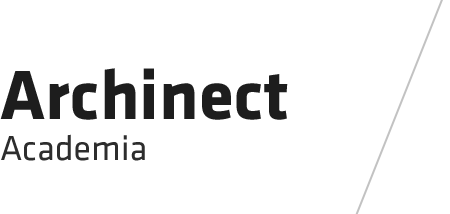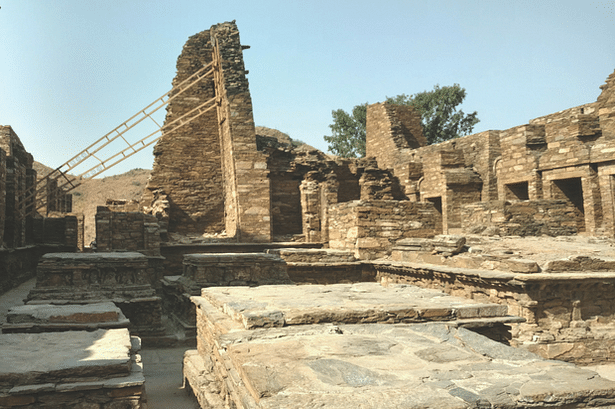
Boston, MA

Excerpted from the Summer 2018 issue of Practice Magazine.
Open any daily newspaper or turn on the news, and there's a good chance you'll hear something bad happening in the Middle East: crackdowns in Egypt and Turkey, civil wars in Syria and Yemen, terrorist strikes in Afghanistan and Iraq. This unrelenting, negative coverage has painted a very dark picture of the Islamic world, one that is eroding the once good relations between the United States and its allies in the region.
To reverse this trend, the U.S. Department of State, through its embassies in Muslim-majority countries like Pakistan, set up a University Partnership program between American and Pakistani institutions of higher education-partnerships designed to foster cultural understanding and closer relations between peoples. Today there are more than 20 of these partnership programs in Pakistan and Afghanistan on themes ranging from business development to graphic design.
In 2013 the BAC was a recipient of such a grant, partnering with the National College of Arts (NCA) in Pakistan, with campuses in both Rawalpindi and Lahore. The goal of the partnership was to promote professional development and expand cultural awareness on the theme of architecture and cultural heritage. The BAC's partnership is the only one that focuses on historic preservation and architectural design.
Over the next three years, the BAC set up faculty and student exchanges, where Pakistani students studied at the BAC, and where BAC faculty visited heritage sites in Pakistan. Saram Maqbool, an NCA student who participated in one of the three month exchanges at the BAC, was impressed by the hands-on approach to learning he experienced here: "The BAC is much like NCA in some respects, and very different in others," he said. "I loved the fact that our courses were not only theory-based, but also had a number of field trips and practical applications for us to work on."
While in the United States and Pakistan, students and faculty from NCA had opportunities to experience some of the latest preservation technology, like photogrammetry and 3D modeling, and were eager to share these with colleagues.
Based on the success of the first grant, the BAC received a second two-year grant in the fall of 2017 to continue their University Partnership. This new grant will fund faculty collaboration between the two schools to develop heritage conservation electives at the NCA and provide further training in materials conservation and digital documentation techniques. These new courses will be integrated into the NCA's architectural and cultural studies curricula.
"While there's a rich cultural heritage in the area, spanning the early Indus Valley civilizations 5,000 years ago to the current independent Pakistan," says Eleni Glekas, the BAC's director of Historic Preservation, "there's limited experience in heritage conservation in Pakistan, but a growing interest." Glekas and her partners at the NCA believe the courses will spark interest in heritage conservation, and help to raise awareness for the preservation of heritage sites of all kind throughout the country. As part of the partnership, NCA faculty will be able to take online courses offered through the BAC's Master of Design Studies in Historic Preservation program and participate in various workshops on digital documentation and materials conservation.
Later this year, NCA faculty members will attend the National Trust for Historic Preservation's annual conference in San Francisco. Prior to the conference they will spend time at the BAC, where they will participate in a materials conservation workshop run by Rebekah Krieger, a conservator with the U.S. National Park Service and a BAC instructor. This will give the NCA faculty an opportunity to experience the kind of practice-based teaching that the BAC is known for, and consider how these workshops would fit into their own curriculum.
"We're looking at this exchange as a learning opportunity for both schools," says Glekas. "The field of historic preservation is changing from a focus on individual buildings to community development, intangible heritage, and the urban landscape." Glekas believes that in this time of increasing polarization, a celebration of diverse heritage is a way to bring people together. "We're all touched by history," she says, "and we're all connected through our heritage, no matter where we live."
History Is In Her DNA
Eleni Glekas joined the BAC as Director of Historic Preservation in 2015. Her interest in history started in childhood, when her parents took her back to their homeland each summer to visit family in Greece. "My parents are very proud of our Greek heritage, and made sure we visited historic sites on each visit," says Glekas. "That's where my love of history and culture comes from."
Growing up, Glekas became fascinated with cities-how they grew and evolved over time, the mix of people, streets, and buildings she saw in them. This led her to pursue a Masters in City and Regional Planning, and then a Masters in Conservation of Monuments and Sites.
Living and working in Boston, with its diverse mix of new and old, plus the opportunities to visit and work in places as diverse as Jordan, India, Pakistan, and Lithuania, has made her position at the College a dream job for her, combining as it does her love of travel, history, cities, and architecture. "Our upcoming trip to New Mexico this summer captures many different aspects of historic preservation," she says. "To see how three cultures-Anglo, Hispanic, and Native American-collided and combined over time in the backdrop of adobe structures and human settlements of various eras-it is fascinating to me! I think it will be fascinating for our students as well."
Glekas believes historic preservation is an important subject to study. "Heritage can be a way to bring people together if people understand the value of it," she says. "We need to educate future professionals who will use it for the betterment of humanity."
No Comments
Block this user
Are you sure you want to block this user and hide all related comments throughout the site?
Archinect
This is your first comment on Archinect. Your comment will be visible once approved.